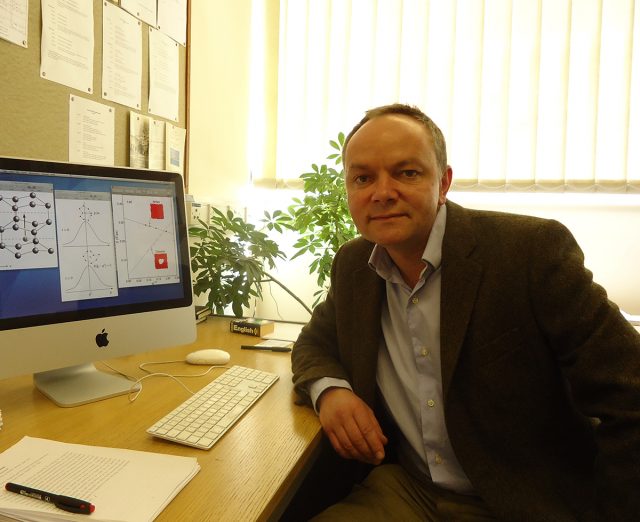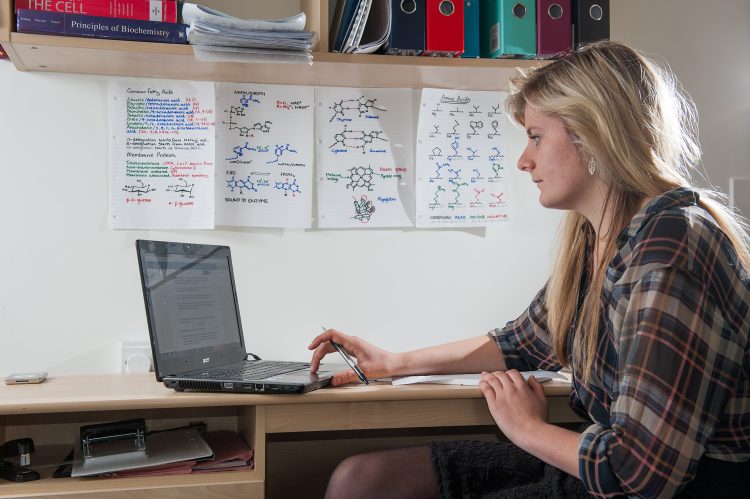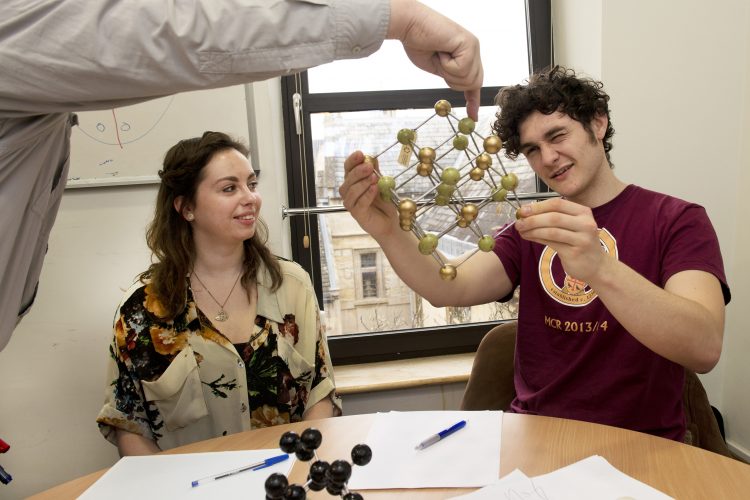Chemistry
undergraduates
Chemistry at the University level is concerned with the interplay between theory and experiment. It is not enough to know that DNA has a double-helix structure or that C60 looks like a football. The challenge is to understand the thinking that suggested these conclusions, the nature of the experiments that were used to confirm them, and the methods used to interpret these experiments. We then go on to ask how molecules hold themselves together, what determines their reactivity and how they can be synthesized, both in the laboratory and in nature.
Answers to these questions come in part from Physics and Biology, and the Oxford Chemistry course offers ample opportunities to sample these related disciplines. There is also a unique opportunity to devote the entire fourth year to original research in an area of your own choice.
Chemistry at St Edmund Hall stands out due to its students, who are a close, friendly group and contribute to life at the College in many ways. Our chemists organise frequent social events, such as Chemistry Curry evenings, and also enjoy formal dinners with their tutors, who include highly respected members of the department.
The St Edmund Hall library is well stocked with key texts for chemists, and the Chemistry Department and Radcliffe Science Library are only a few minutes away by bike or on foot.
We are fortunate to have permanent tutors in all three branches of chemistry, two of whom are also professors in the Chemistry Department. This means that, unlike a number of other colleges, we do not rely on external tutors or temporary arrangements to provide the main part of the teaching in any branch of the subject. In addition, the college has in place a graduate teaching assistant scheme which provides 1:1 additional tuition where needed.
Typically about 55% of Oxford’s Chemistry graduates go on to do research or further study. Others enter professions such as accountancy, banking and actuarial work, as well as manufacturing, IT and education.
The subjects and grades required to study Chemistry at St Edmund Hall match those listed in the University Prospectus. Chemistry and Mathematics at A level (or equivalent) are considered essential for this course.
I enjoy how challenging and rewarding the course is. You learn about a broad range of topics within Chemistry, but in a lot of depth. The level of personal teaching we receive has enabled me to become far more competent and confident in my subject than I thought I would be.
Emma
Our Tutors

David
Manolopoulos
Professor of Theoretical Chemistry and Tutor in Chemistry
David Manolopoulos, who is a Professor of Theoretical Chemistry, has been a tutor here since 1995. His undergraduate and visiting student teaching at the College covers essentially all aspects of physical and theoretical chemistry.

Anna
Regoutz
Associate Professor in Experimental Inorganic Chemistry and Tutorial Fellow in Inorganic Chemistry
Anna Regoutz joined St Edmund Hall and the University of Oxford in September 2024 as an Associate Professor of Experimental Inorganic Chemistry and Tutorial Fellow in Inorganic Chemistry. Anna leads an interdisciplinary and diverse experimental research group in the Inorganic Chemistry Laboratory.
Related Courses


UCAS course codes
F100
Places available: 6
See syllabus and entry requirements for further information.